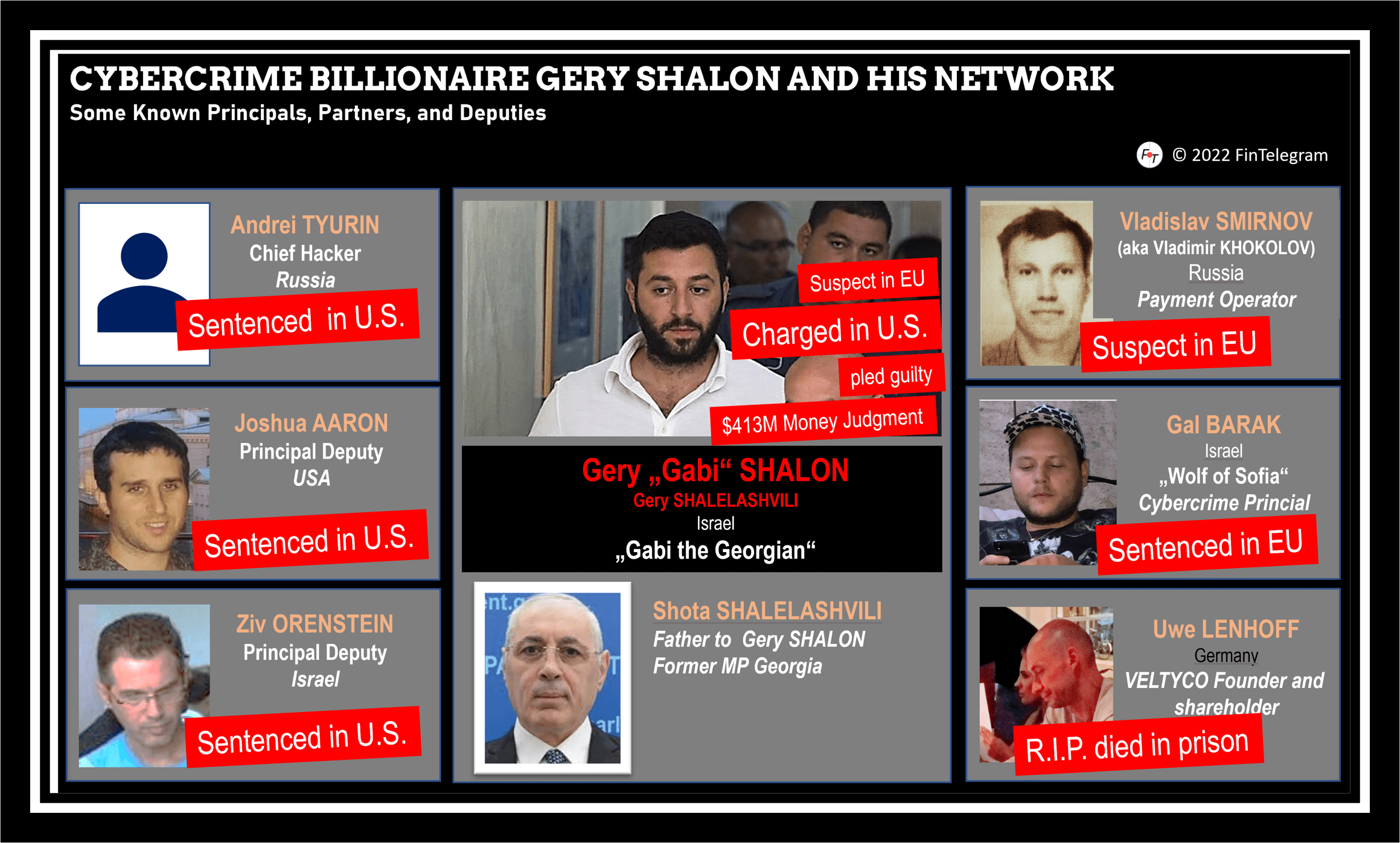The Georgien-born Israeli Gery “Gabi” Shalon, a notable figure in the global financial cybercrime landscape, was charged by U.S. prosecutors on November 9, 2015, with a multitude of offenses spanning computer hacking, securities fraud, aggravated identity theft, illegal online gambling, illegal money transmitting business, and money laundering. His indictment highlights a broad array of sophisticated criminal activities, including the use of 75 front companies and the generation of hundreds of millions of dollars in illicit proceeds.
Plea Agreement and Its Implications
In 2017, Gery Shalon entered a guilty plea to all charges in what was a sealed courtroom arrangement. This plea resulted in a forfeiture of a substantial fortune of assets worth around $400 million, including a $74.7 million bank account, in exchange for a more lenient sentence compared to his co-conspirators. This leniency raises questions about the influence of Shalon’s father, Shota Shalelashvili, a high-ranking Georgian politician until 2021, and how it may have played a role in the negotiations.
U.S. Legal Strategy: Political Leverage and Cooperation
The U.S. has consistently been willing to negotiate with defendants like Shalon, particularly when such cooperation aligns with broader political or strategic goals. Shalon’s extensive cooperation with U.S. law enforcement facilitated major breakthroughs in other cases, notably leading to the arrest and sentencing of Russian accomplice Andrei Tyurin. Moreover, Shalon provided important information about the Russian hacker and cybercrime scene to the U.S. authorities, which is valuable information in the cybercrime war between America and Russia.
This pattern of behavior is reminiscent of the U.S.’s approach in other high-profile cases, including that of Changpeng Zhao, where geopolitical considerations concerning China and other U.S. adversaries using financial platforms like Binance for money laundering were evident.
Like Shalon, Binance and its founder and former CEO, Zhao, plead guilty to the charges. As part of the $4.3 billion settlement between Binance, Zhao, and the US authorities, the crypto exchange had to agree to install an “independent compliance monitor” inside the company. That means that the U.S. governmental agencies now have eyes on every trade made on the exchange, both in the past and for the next three years, along with identifying information as required by the exciting new anti-money laundering measures at Binance.
Current Status and European Connections
After his house arrest in New York, Gery Shalon returned to Israel under undisclosed conditions with no public sentencing, underscoring the secretive nature of his agreement with U.S. authorities. His network, particularly through figures like Gal Barak and Vladislav “Vlad” Smirnov, highlights a substantial European connection, indicating that Shalon’s influence and operations extended far beyond the U.S.
Barak’s conviction and ongoing legal battles in Europe, including potential further charges, show the sprawling nature of the network Shalon controlled. These European links are crucial as they demonstrate the transnational nature of modern financial cybercrime and the challenges it poses to global law enforcement.
Legal and Diplomatic Complexities
The opaque handling of Shalon’s case, the strategic use of his cooperation by U.S. authorities, and the ongoing international implications provide a fascinating insight into the complexities of prosecuting international cybercrime. The U.S. strategy of leveraging criminal cooperation for broader legal and political gains is evident in Shalon’s case, which serves as a blueprint for understanding similar cases.
Preliminary Conclusion
As new investigations may result in additional charges against Shalon’s associates, the full scope of his influence and the effectiveness of his cooperation with authorities continue to be of paramount interest to law enforcement and legal experts globally. The Gery Shalon case not only reveals the depths of cybercrime intricacies but also sheds light on the nuanced and sometimes controversial strategies employed by U.S. law enforcement in navigating these global challenges.
